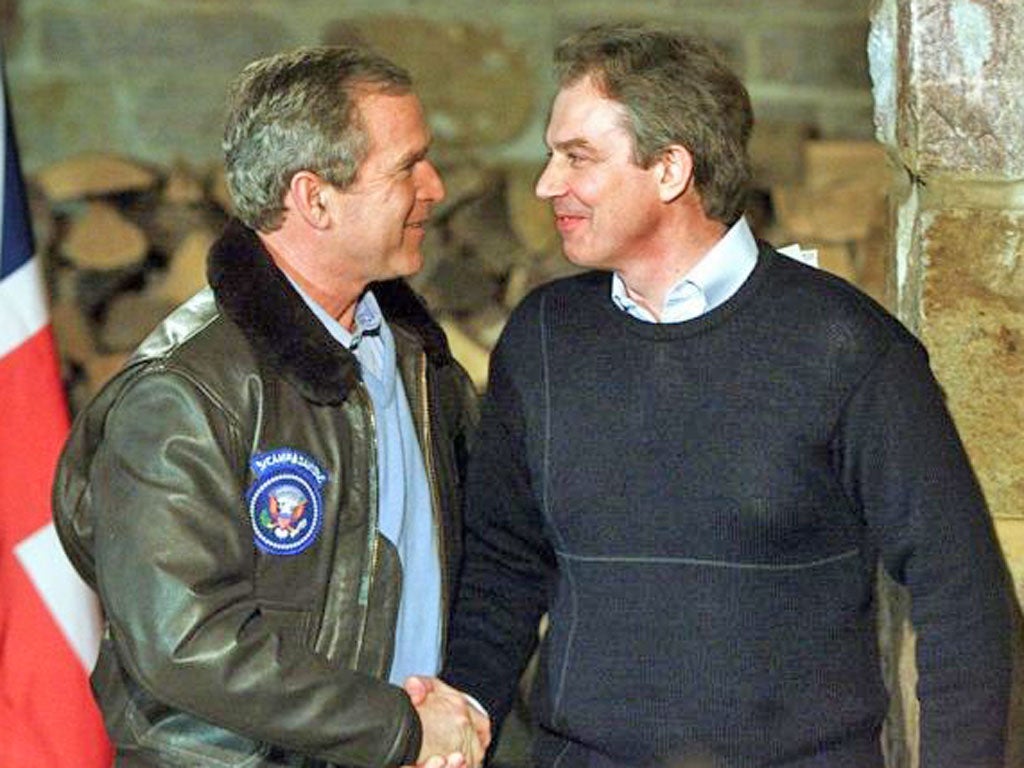Chilcot inquiry into Iraq will not be released until next year
Latest setback blamed on row with Whitehall over classified talks between Bush and Blair

Your support helps us to tell the story
From reproductive rights to climate change to Big Tech, The Independent is on the ground when the story is developing. Whether it's investigating the financials of Elon Musk's pro-Trump PAC or producing our latest documentary, 'The A Word', which shines a light on the American women fighting for reproductive rights, we know how important it is to parse out the facts from the messaging.
At such a critical moment in US history, we need reporters on the ground. Your donation allows us to keep sending journalists to speak to both sides of the story.
The Independent is trusted by Americans across the entire political spectrum. And unlike many other quality news outlets, we choose not to lock Americans out of our reporting and analysis with paywalls. We believe quality journalism should be available to everyone, paid for by those who can afford it.
Your support makes all the difference.The long-awaited official inquiry into the Iraq War will not now report until the second half of next year, it was announced yesterday.
Sir John Chilcot, the former senior civil servant heading the investigation, had initially been due to report by May last year, which was later put back to the autumn. Then he said it would not be published until this summer at the earliest. The inquiry held 18 months of public hearings between the end of 2009 and early 2011.
Yesterday his frustrated five-strong team blamed the latest setback on a wrangle with Whitehall over which classified documents can be published alongside its report. The papers include those that disclose which ministers, legal advisers and officials were excluded from discussions on the 2003 military action, and those relating to MI6 and the Government's electronic eavesdropping centre, GCHQ.
Sir John has clashed with the former Cabinet Secretary Lord O'Donnell over the refusal to reveal details of correspondence and conversations between Tony Blair and George W. Bush in the run-up to the invasion. Their disclosure would serve to "illuminate Mr Blair's position at critical points", Sir John said last year.
He has expressed concern that some of the discussions inside government have been revealed in books written by Mr Blair and his former chief of staff Jonathan Powell and the published diaries of Alastair Campbell, his former communications director.
Sir John said those publications, and the refusal to reveal Mr Blair's notes, "leads to the position that individuals may disclose privileged information [without sanction] whilst a committee of privy counsellors established by a former Prime Minister to review the issues, cannot".
The further delay is a potential blow for Mr Blair, who is braced for criticism for his role. He has just returned to domestic politics after five years and appeared alongside Ed Miliband at a Labour fund-raiser last week.
Allies of Mr Blair hope that the inquiry will be the final word on the Iraq controversy which still dogs him and that he will play a role at the next general election. That might be more difficult if a critical report is still fresh in people's minds.
In a letter to David Cameron, Sir John said: "The inquiry has made extensive progress in drafting its report, which will comprise both a reliable account of the events and the inquiry's conclusions, but its task is not yet complete. The issues are complex and difficult and there are significant lessons. Some are specific to the circumstances of Iraq, but most have a more general application for the conduct of government. The final report is likely to be more than a million words."
Sir John said that Martin Gilbert, the historian and member of the inquiry panel, has been seriously ill since April and has not been able to contribute to its work.
Join our commenting forum
Join thought-provoking conversations, follow other Independent readers and see their replies
Comments